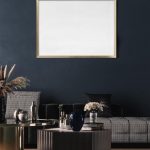Can decor for home office be a tax deduction? Many individuals who operate a business from their homes may wonder whether they can claim the cost of decorating their workspace as a tax deduction. Understanding the concept of tax deductions for home office decor is essential for maximizing potential savings and minimizing tax liabilities.
When it comes to qualifying for a tax deduction, there are specific requirements that must be met to ensure that decor expenses are eligible. Individuals must also understand what qualifies as a home office for tax purposes in order to determine which decor items can be considered for deduction.
In this article, we will explore the concept of tax deductions for home office decor, including the requirements and limitations, examples of eligible decor items, documentation and justification of expenses, tips for maximizing deductions, and recommendations for seeking professional advice on navigating the complexities of tax deductions for home office decor. By understanding these key points, individuals can make informed decisions about claiming decor expenses as a tax deduction.
What Qualifies as a Home Office for Tax Purposes
When it comes to determining what qualifies as a home office for tax purposes, the Internal Revenue Service (IRS) has specific guidelines that must be met in order for the space to be eligible for tax deductions. The key requirement is that the home office must be used regularly and exclusively for business purposes. This means that the space must be used solely for conducting business activities, such as administrative tasks, meetings with clients, or other work-related functions.
Regular and Exclusive Use
In order to meet the regular and exclusive use requirement, the home office must be a designated area within the home that is used consistently and solely for conducting business activities. This means that it cannot double as a personal workspace or multi-purpose room. The IRS will also consider factors such as whether the home office is the primary place of business or where the majority of work is conducted.
Principal Place of Business
In addition to regular and exclusive use, the home office may also qualify as the principal place of business if it is used for administrative or management activities such as billing clients, setting appointments, or managing paperwork related to the business. However, keep in mind that if there is another location where substantial administrative or management functions are conducted, then it may not qualify as a principal place of business.
Overall, it’s important to carefully review IRS guidelines and consult with a tax professional to ensure that your home office meets all necessary requirements for tax purposes. Only then
Understanding the Requirements for Decor to Be Eligible for Tax Deduction
When it comes to claiming home office decor as a tax deduction, there are specific requirements that need to be met in order for these expenses to qualify. In general, the Internal Revenue Service (IRS) allows self-employed individuals and employees who work from a dedicated home office to deduct certain expenses related to their workspace, including decor. However, there are some conditions that must be satisfied in order for these deductions to be legitimate.
First and foremost, the decor in question must be directly related to the function of your home office. This means that any items you wish to deduct as business expenses must serve a practical purpose in your work environment.
For example, furniture such as desks, chairs, bookshelves, and filing cabinets that are used exclusively for work purposes can potentially qualify for a tax deduction. On the other hand, purely decorative elements like artwork or plants may not meet the criteria unless they can be proven to enhance productivity or have a direct impact on your professional activities.
Apart from being necessary for your job, the decor items you want to claim as a tax deduction should also be ordinary and reasonable in nature. This means that they shouldn’t be extravagant or excessive given the type of business you operate and the size of your home office. It’s important to remember that the IRS has guidelines in place to prevent taxpayers from abusing deductions for lavish or unnecessary expenses.
Finally, it’s crucial to keep detailed records of all your home office decor expenses if you intend to claim them as tax deductions. This includes receipts, invoices, and any other relevant documentation that can validate the cost and purpose of each item. By maintaining accurate records, you can substantiate your claims in case of an audit or inquiry by tax authorities.
| Eligibility Criteria | Key Considerations |
|---|---|
| Directly related to home office function | Practical purpose for work environment |
| Ordinary and reasonable | Avoid extravagant or excessive expenses |
| Detailed record-keeping | Receipts, invoices, documentation |
Examples of Decor Items That Can Be Considered for Tax Deduction
When it comes to claiming decor for your home office as a tax deduction, there are certain items that may qualify under the IRS guidelines. While it is important to understand that not all decor expenses will be eligible for this tax benefit, there are some specific items that can potentially be considered for deduction. Here are some examples of decor items that can be considered for tax deduction:
1. Furniture: Ergonomic chairs, desks, bookshelves, and other necessary furniture for your home office setup can potentially be included as part of your tax-deductible expenses.
2. Lighting: Proper lighting is essential in a home office environment, so the cost of purchasing and installing lighting fixtures such as desk lamps or overhead lights can potentially qualify for a tax deduction.
3. Wall Decor: Artwork, paintings, wall clocks, or other decorative items that contribute to the aesthetic appeal of your home office may also be eligible for consideration as a tax-deductible expense.
It’s important to note that these examples are not exhaustive, and there may be other decor items in your home office that could potentially qualify for a tax deduction. However, it is crucial to keep detailed records and receipts for all purchases and expenses related to these decor items to support your claims during tax filing season.
Additionally, it’s always wise to consult with a professional tax advisor or accountant who specializes in home office deductions to ensure that you are meeting all the necessary requirements and guidelines set forth by the IRS. By seeking expert advice, you can maximize your chances of legitimately claiming decor expenses as a tax deduction without facing potential limitations or restrictions from improper documentation.
How to Document and Justify Home Office Decor Expenses for Tax Purposes
When it comes to documenting and justifying home office decor expenses for tax purposes, there are a few key steps to keep in mind. First and foremost, it’s important to understand what qualifies as a home office for tax purposes. The IRS considers a home office to be a specific area within your home that is used exclusively and regularly for business purposes. This can include a separate room or a designated space within a room.
Once you have established that your designated space qualifies as a home office, you can consider the decor items that may be eligible for tax deduction. In general, decor items that are directly related to the function of the home office can be considered for deduction. This includes furniture such as desks, chairs, and bookshelves, as well as lighting fixtures, rugs, and window treatments.
When documenting your home office decor expenses, it’s essential to keep detailed records of all purchases. This includes receipts, invoices, and any other documentation that supports the expense. Additionally, you will need to demonstrate that these decor items are used exclusively for business purposes in your home office. This can be done through photographs or by keeping a log of usage.
In order to justify these expenses for tax purposes, it’s advisable to seek professional advice from a tax accountant or financial advisor who specializes in small business taxes. They can provide guidance on what documentation is required and how to navigate any potential limitations or restrictions for claiming decor as a tax deduction.
| Expense | Justification |
|---|---|
| Desk | Used solely for work-related activities |
| Rug | Designated area for chair and desk in the home office |
| Lighting fixtures | Essential for proper illumination during work hours |
Potential Limitations and Restrictions for Claiming Decor as a Tax Deduction
When it comes to claiming decor for a home office as a tax deduction, there are certain limitations and restrictions that you need to be aware of. While it is possible to deduct expenses related to home office decor, there are specific guidelines that must be followed in order for these deductions to be valid.
Eligibility Criteria
In order for decor expenses to qualify as a tax deduction, the items must be directly related to the functioning of your home office. This means that the decor should serve a practical purpose in your workspace, such as providing ergonomic support or enhancing productivity. Items that are purely aesthetic, such as artwork or decorative plants, may not be eligible for tax deduction unless they can be proven to have a direct impact on your work performance.
Exclusivity Requirement
Another key restriction for claiming decor as a tax deduction is the requirement for exclusivity of the space. The area designated as your home office must be used solely for work purposes and not have any personal or recreational use. If the space doubles as a guest room or entertainment area, you may not be able to claim all decor expenses as tax deductions.
Documentation and Substantiation
It’s important to keep thorough records and receipts for all home office decor expenses in case of an audit by the IRS. Proper documentation will help substantiate your claims and ensure that you can justify each expense as being necessary for your business operations. Additionally, it’s advisable to consult with a tax professional who can provide guidance on what items can and cannot be claimed as tax deductions within the realm of home office decor.
By understanding these limitations and restrictions, individuals with home offices can take advantage of legitimate opportunities for tax deductions while mitigating potential risks associated with incorrect claims.
Tips for Maximizing Home Office Decor Tax Deductions
When it comes to maximizing home office decor tax deductions, there are several strategies that can be employed to ensure that you are making the most of this potential benefit. Here are some tips to consider:
- Keep detailed records: It’s important to keep thorough and accurate records of all your home office decor expenses. This includes receipts for furniture, lighting, artwork, and any other items you intend to claim as a tax deduction. Without proper documentation, it can be difficult to justify these expenses in the event of an audit.
- Understand the rules: Familiarize yourself with the specific guidelines and requirements for claiming home office decor as a tax deduction. Different rules may apply depending on whether you are self-employed or work for an employer, so it’s important to know what is allowed and what is not.
In addition to keeping detailed records and understanding the rules, it’s also advisable to seek professional advice from a tax accountant or financial advisor who specializes in small business or self-employment taxes. They can provide personalized guidance based on your individual circumstances and help you navigate the complexities of claiming home office decor as a tax deduction.
Remember that while maximizing home office decor tax deductions can provide valuable financial benefits, it’s crucial to ensure compliance with IRS regulations and seek professional advice when necessary. By following these tips and consulting with experts where needed, you can make the most of potential tax deductions for your home office decor.
Conclusion
In conclusion, while it is possible to claim decor for a home office as a tax deduction, there are specific requirements that must be met in order for these items to be eligible. It’s important to remember that the IRS has strict guidelines for what qualifies as a home office and what types of expenses can be deducted. For example, the space used as a home office must be used exclusively and regularly for business purposes.
Additionally, any decor items being considered for tax deduction must directly contribute to the functionality or aesthetics of the home office. This means that decorative pieces purely for personal enjoyment or general household use may not qualify. Proper documentation and record-keeping are also crucial when it comes to justifying home office decor expenses for tax purposes.
For individuals looking to maximize their home office decor tax deductions, seeking professional advice from a tax consultant or accountant is highly recommended. These experts can provide personalized guidance based on individual circumstances and help ensure that all eligible deductions are claimed in compliance with IRS regulations. Ultimately, consulting with professionals can help taxpayers navigate potential limitations and restrictions for claiming decor as a tax deduction and avoid any legal or financial repercussions.
Frequently Asked Questions
Can You Write-Off Home Office Decor?
The ability to write off home office decor depends on whether you are self-employed or an employee. Self-employed individuals can potentially deduct home office decor as part of their business expenses, while employees cannot.
Can I Write-Off Art for My Home Office?
Art for a home office may be deductible if it is directly related to your business and is used exclusively in the space where you conduct your work. However, personal or general artwork typically would not qualify for a tax write-off.
What Expenses Are Tax-Deductible for Home Office?
Tax-deductible expenses for a home office can include a portion of your rent/mortgage, utilities, internet and phone bills, office supplies, and even some repairs and maintenance costs. It’s important to keep accurate records and ensure that these expenses are directly related to your home office use.

I’m thrilled to be your companion on this exciting journey through the world of home decor and design. With a passion for turning houses into homes and a keen eye for the finer details, I’m here to help you transform your living spaces into beautiful, functional, and meaningful havens.





